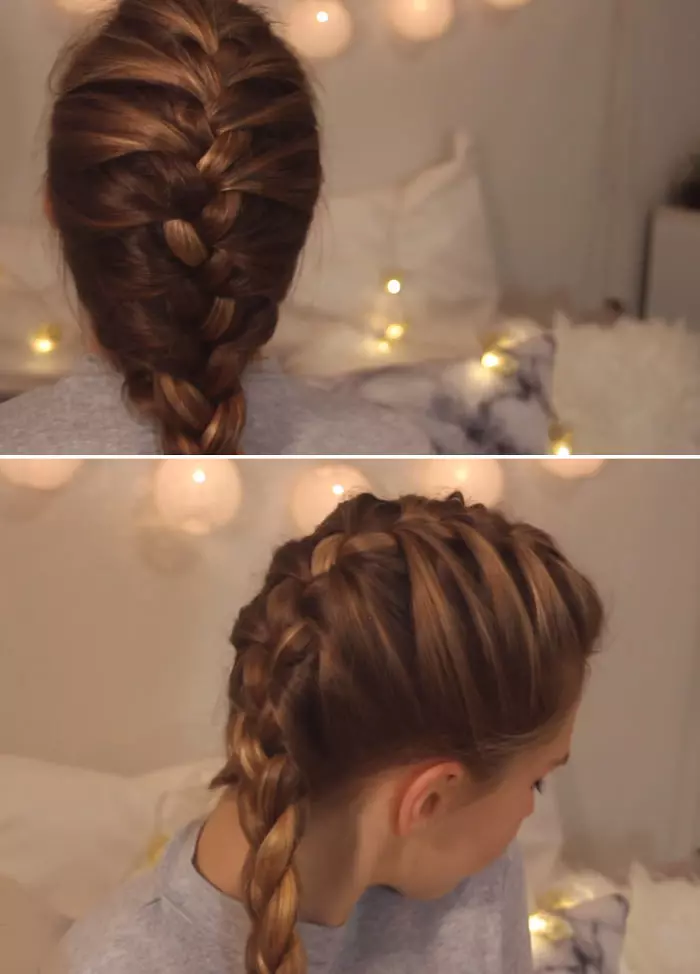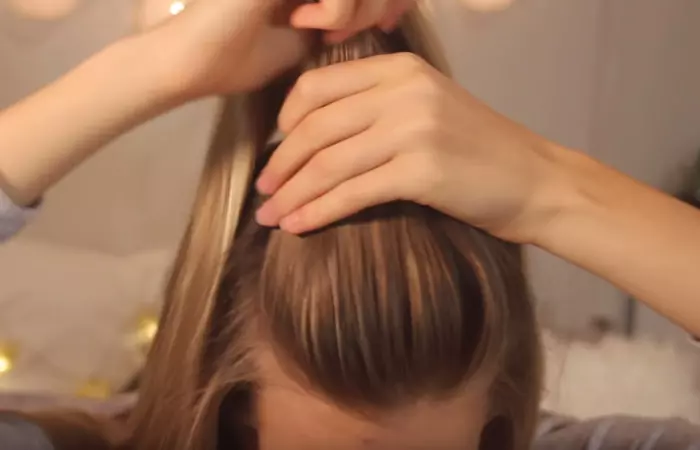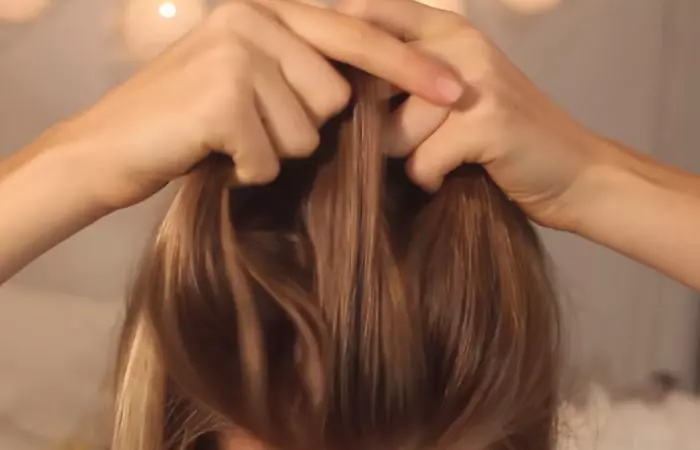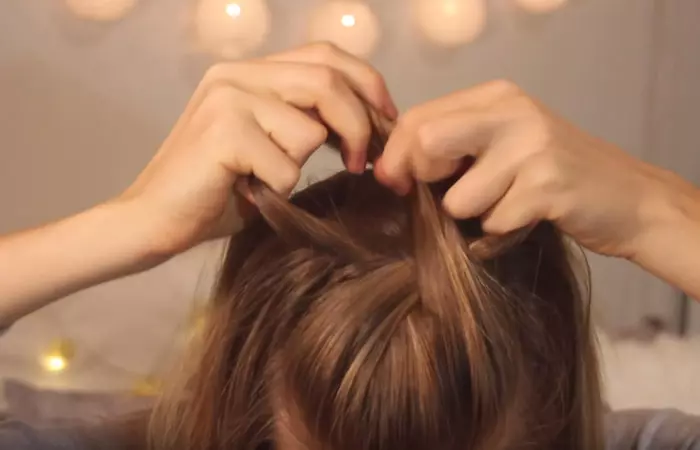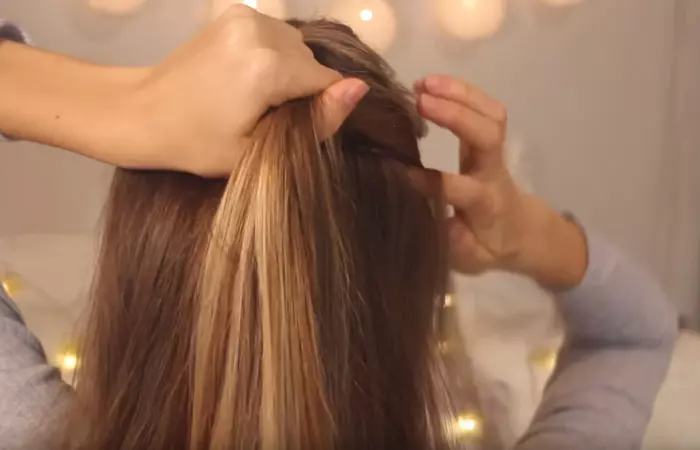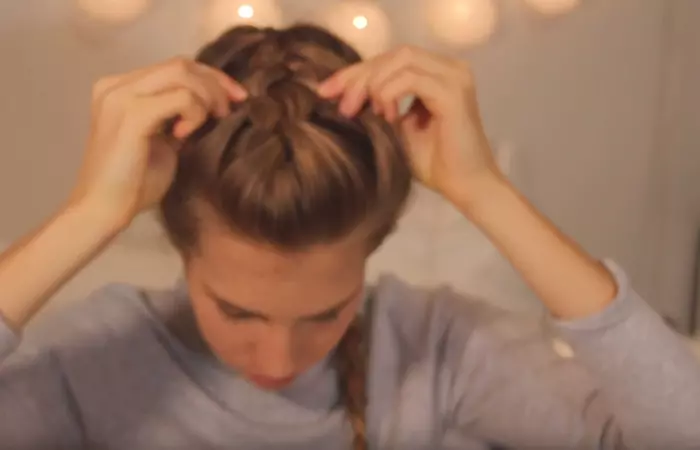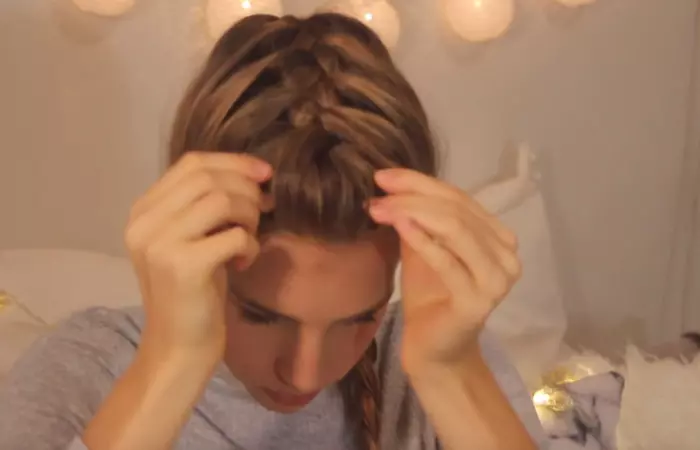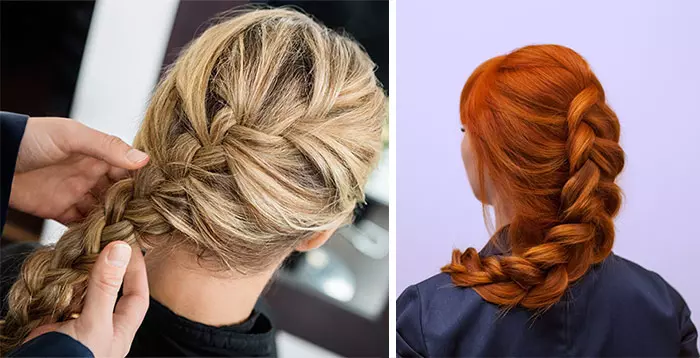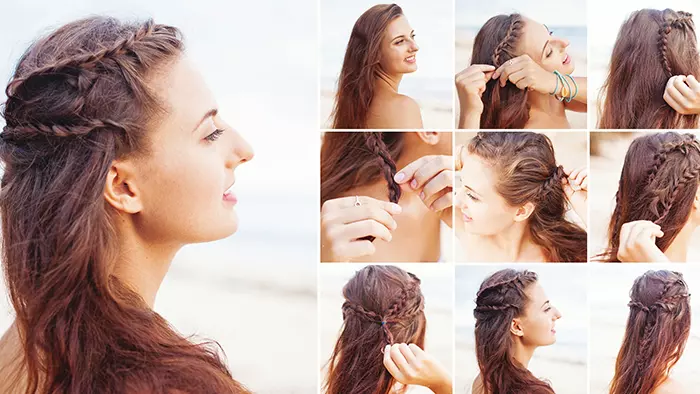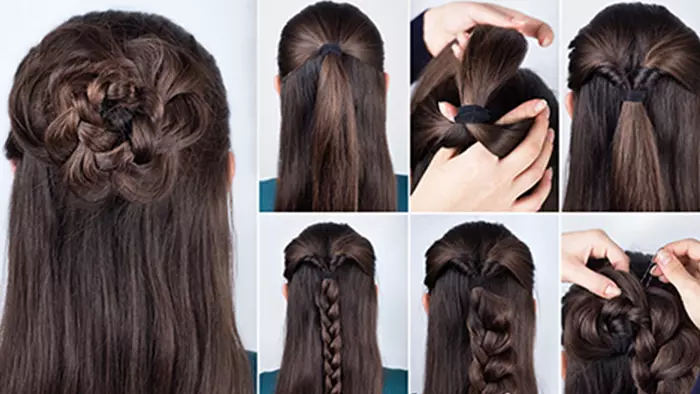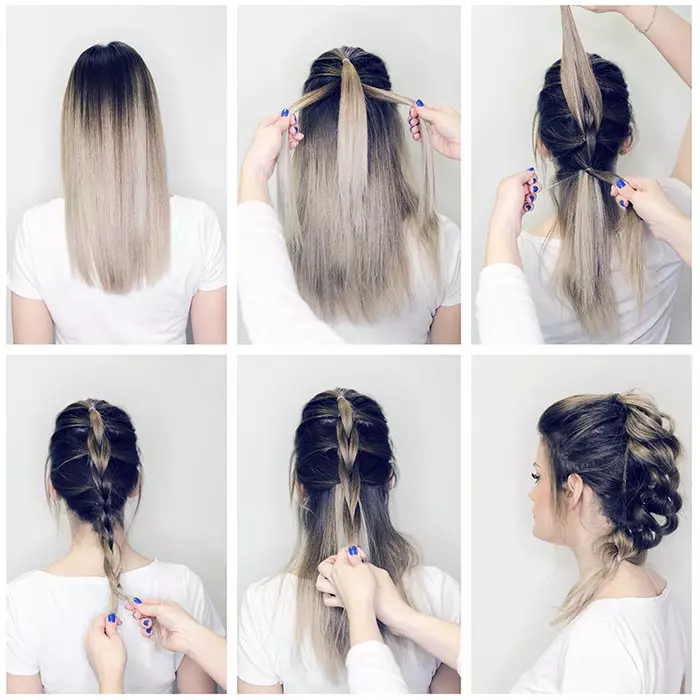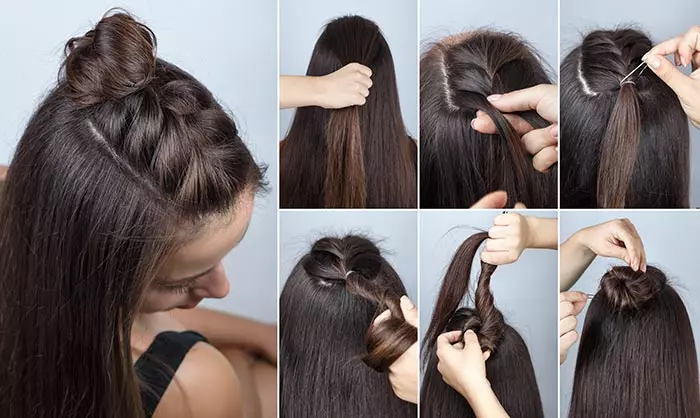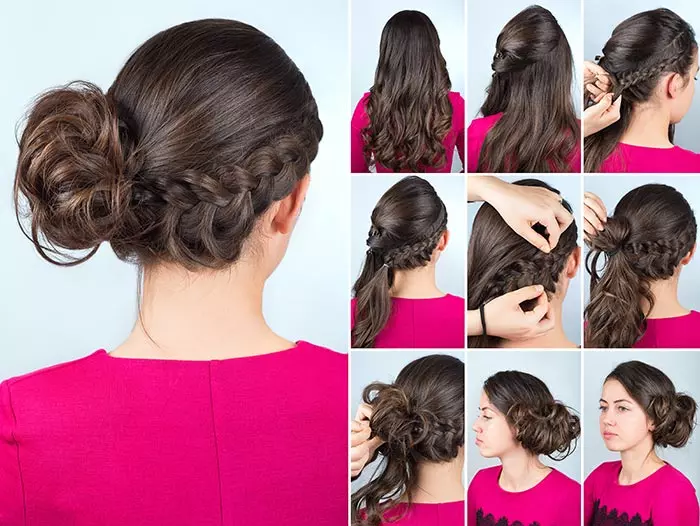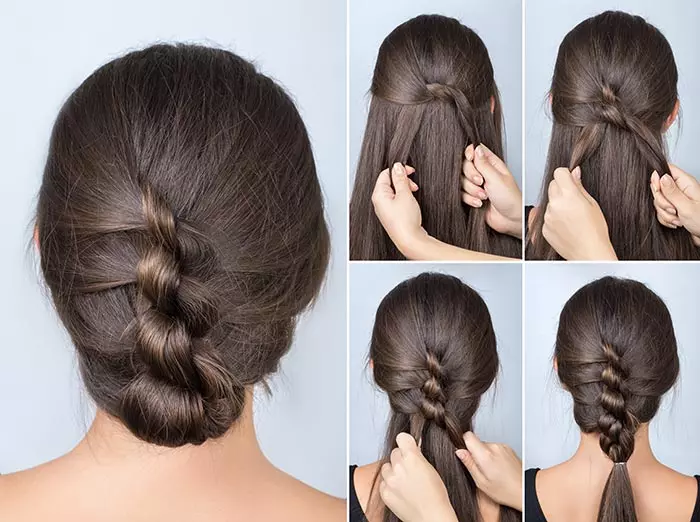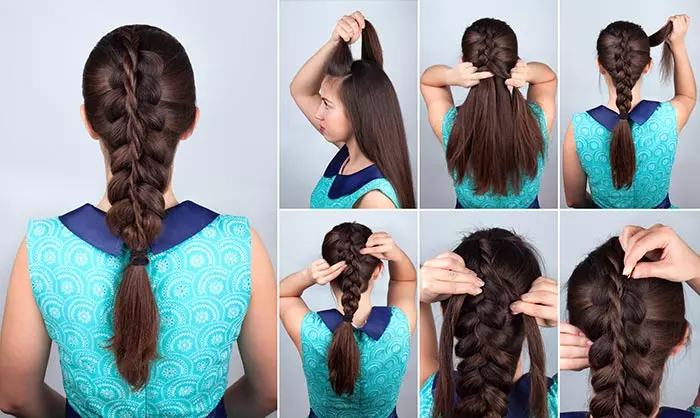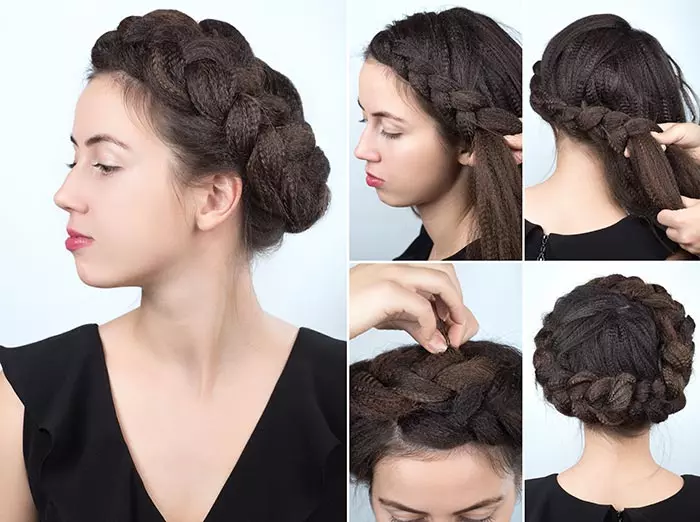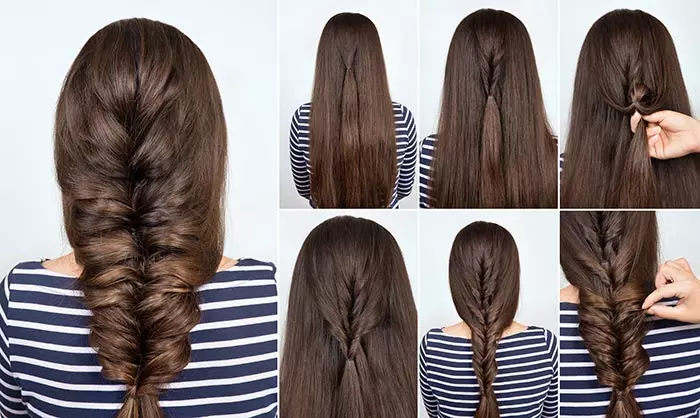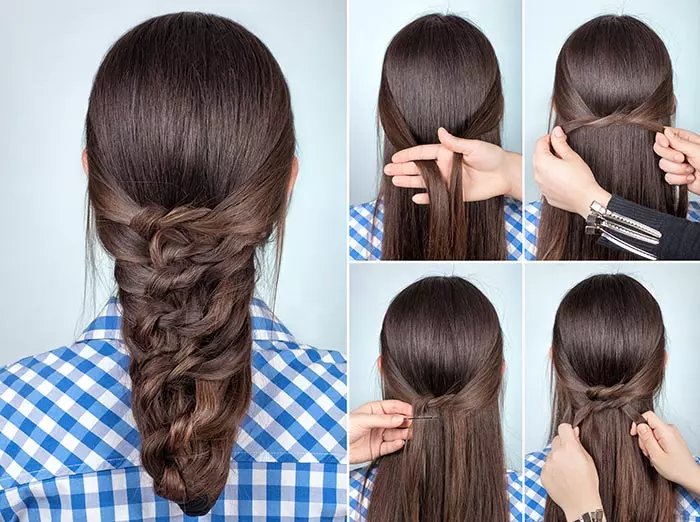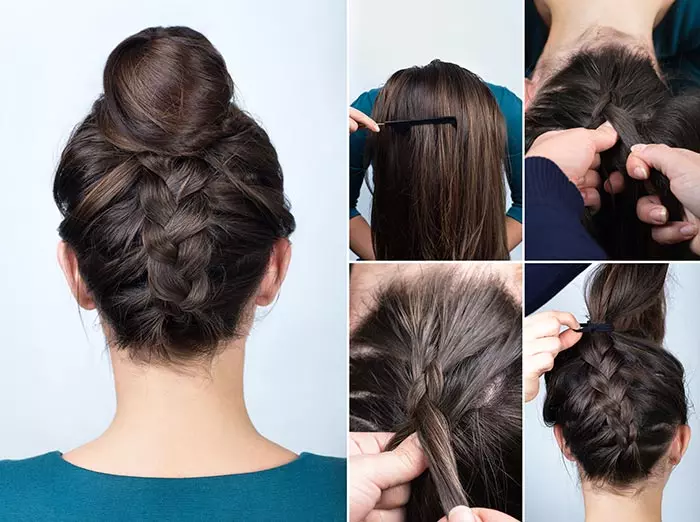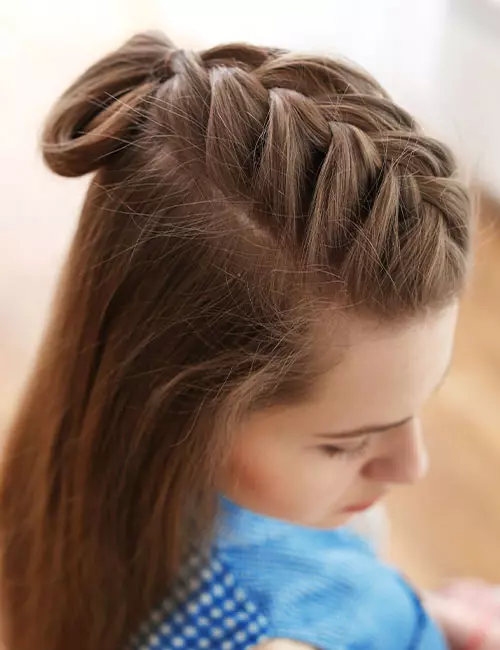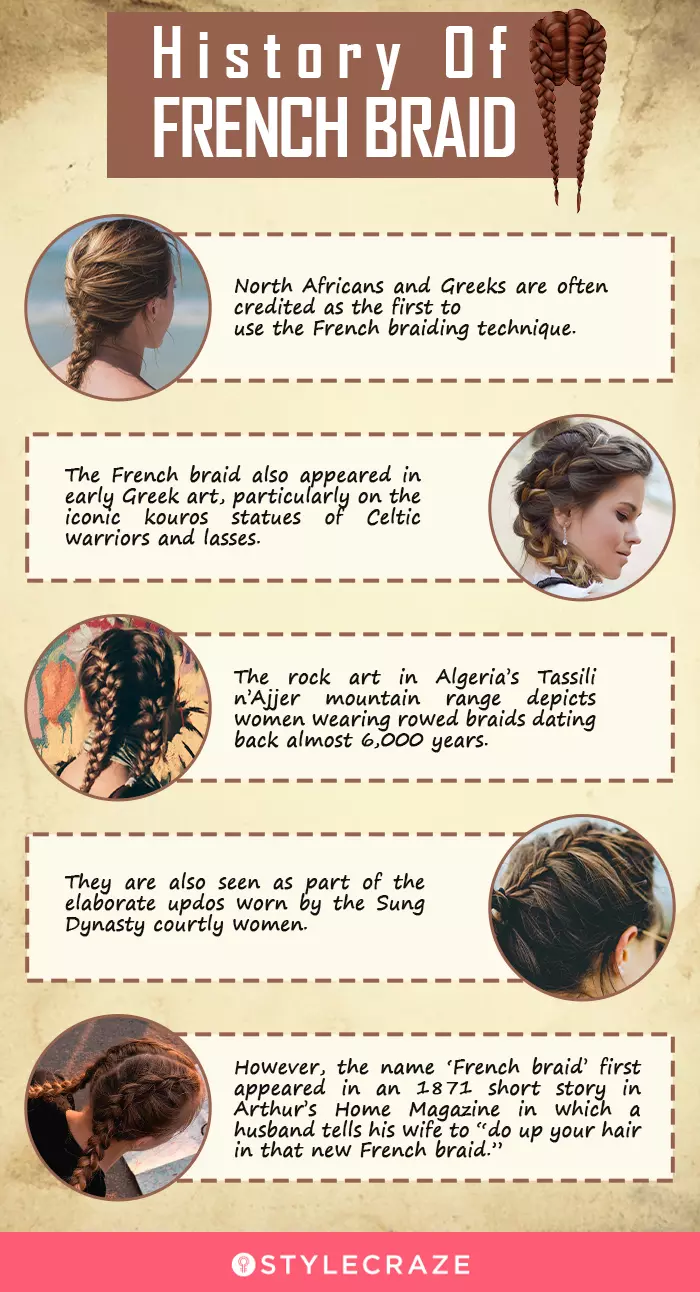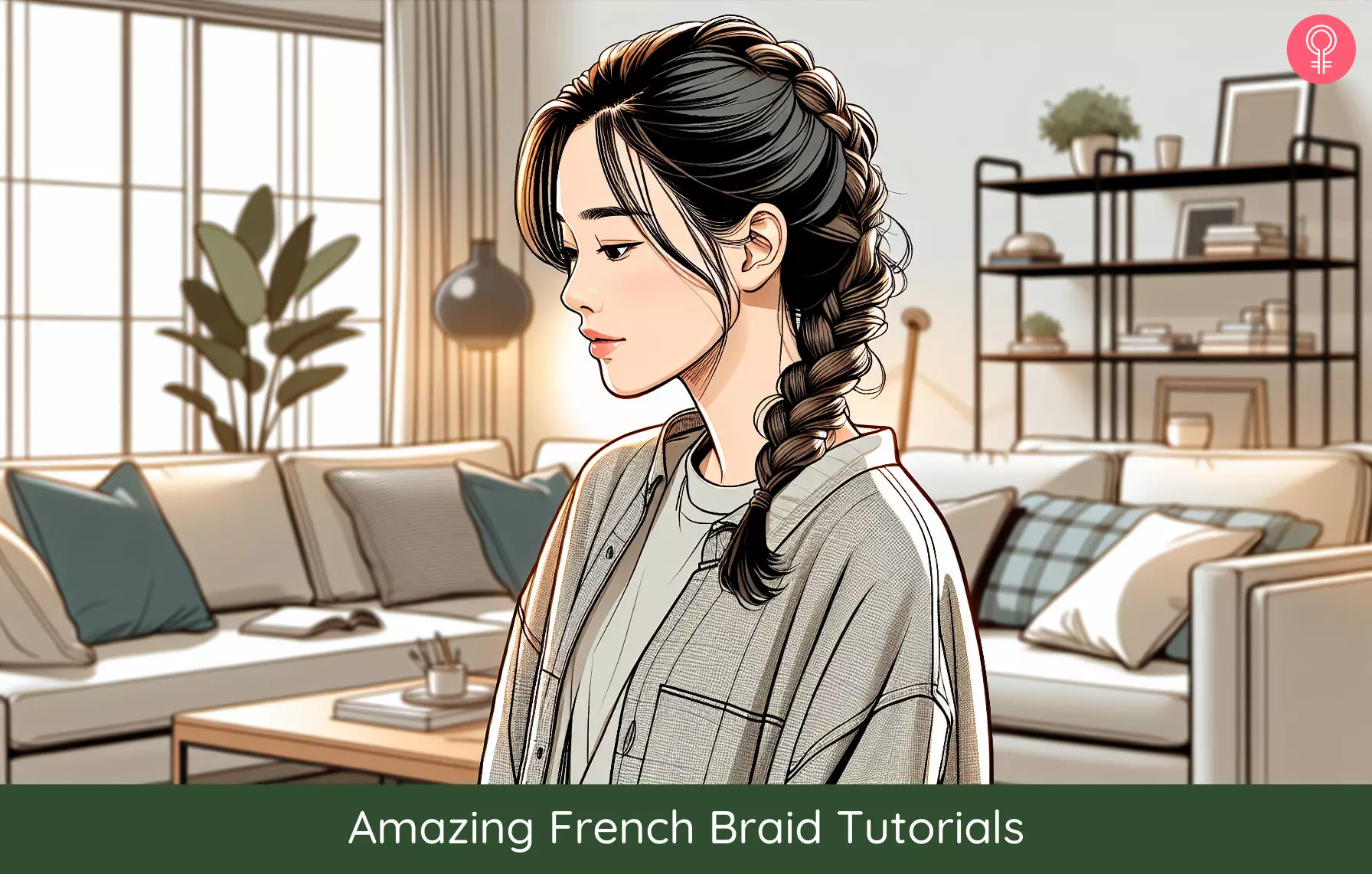French braids are one of the most popular hairstyles. From kids to adults – everyone loves looking up French braid tutorials to style their hair. It is a beautiful way to keep your hair out of your face and up your hairstyling and beauty game easily! French braid is perfect for hot summers, the gym, playing sports, for fancy occasions, and even just for a casual day. Read on to learn how to weave French braids in different styles to suit the occasion. Scroll down!
What Is A French Braid?
A French braid is one of the most popular types of braids and usually has three strands. You have to cross the middle section under the side sections and add more hair to the side sections with each subsequent stitch of the braid. Casey Simmons, a curly hair expert with over 20 years of experience, says, “French braids are perfect for curly haired folks not ready for a wash-day or just being active. Pull pieces from your face and twist with your favorite curl cream.”
What You Need
Hair brush Elastic band
How To Do
Martha Luthein, a blogger who likes to experiment with her go-to hairstyle of French braids, and enjoys making her own iterations of the popular hairstyle, states, “The style I wear the most is that I usually add the paranda at the top when I start braiding, sometimes I add it when the braiding reaches the nape (i).” Paranda is a traditional decorative element or hair accessory that helps to enhance the beauty of the mane. The blogger includes it to add a pop of color to her hairstyle and make it look unique. The Dutch braid has been gaining popularity in recent times, which comes as no surprise because it looks stunning. Though it looks quite similar to the French braid, there are some key differences between the two. Here’s what you need to know.
Difference Between French Braid Vs. Dutch Braid
The major difference between French braid and the Dutch braid hairstyle lies in the way you weave the middle section of the braid. In the French braid, you pass the middle section under the side sections. In the Dutch braid, you pass the middle section over the side sections. You can tell the difference just by looking at both the braids. The French braid looks like it is underneath your hair while the Dutch braid looks like it is lying on top of it. To find out how to weave a Dutch braid, check out this article. Now that you know all about the French braid and how to do a basic one, let’s check out some gorgeous styles you can do with it!
24 Best French Braiding Styles
1. Double French Braids With Beach Waves
What You Need
Hair brush Elastic band Bobby pins
How To Do
2. Braided Half Updo
What You Need
Comb U- pins Elastic bands
How To Do
3. French Braid Pigtails
Hair brush Elastic bands
4. Double French Braid
Comb Elastic bands Clip
5. French Braid Ponytail
Comb Elastic bands
6. Messy French Braid
Elastic band
7. Mermaid French Braid
Elastic bands Brush
8. Side-Swept French Braided Bangs
Comb Brush Bobby pins Elastic band
9. French Braided Updo
Comb Elastic bands Bobby pins
10. Faux French Braid
Comb Bobby pins
11. French Braid Half Top Knot
Rat-tailed comb Elastic band Bobby pins
12. Low Side French Bun
Rat-tailed comb Bobby pins Thin elastic bands
13. French Knot Tuck Updo
Hair brush Elastic bands
14. Double Braided ‘Do
Comb Bobby pins Elastic bands
15. Half French Braid
Comb Elastic band
16. French Braid Wreath
Comb Bobby pins Elastic band
17. One French Braid
Hair brush Elastic bands Bobby pins
18. Goddess French Braid
Thin elastic bands Comb
19. Upside Down French Braid Bun
Comb Bobby pins Elastic bands
20. Double Messy French Braid Bun
Comb Elastic bands Bobby pins
21. Celebrity French Braid
Hair brush Rat-tailed comb Elastic bands Bobby pins
22. The Fancy French Braid
Comb Bobby pins Elastic band
23. Double Side French Braid
Comb Bobby pins Elastic bands
24. Half-Up French Braid
Comb Section clips Elastic bands
Is it easier to do a French braid with wet hair? No. Making a French braid is easier on dry hair. Wet hair is weaker, and braiding may cause further damage to its structure. How long should I leave French braids in? You can leave your French braids in for 3-4 days if the braids are tight, and you protect them in satin wraps at night. Does a French braid damage hair? Not in the short term. However, if you constantly braid your hair in the same style tightly and do not follow a proper hair care routine, it could hurt your scalp and weaken the hair roots. What is a reverse French braid called? A reverse French braid is called a Dutch braid. Need help to create a super elegant side French braid hairstyle? Follow these steps to create the perfect French braid for your hair in minutes.
Illustration: Amazing French Braid Tutorials
